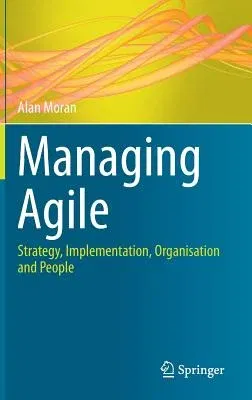This book examines agile approaches from a management perspective by
focusing on matters of strategy, implementation, organization and
people. It examines the turbulence of the marketplace and business
environment in order to identify what role agile management has to play
in coping with such change and uncertainty. Based on observations,
personal experience and extensive research, it clearly identifies the
fabric of the agile organization, helping managers to become agile
leaders in an uncertain world.
The book opens with a broad survey of agile strategies, comparing and
contrasting some of the major methodologies selected on the basis of
where they lie on a continuum of ceremony and formality, ranging from
the minimalist technique-driven and software engineering focused XP, to
the pragmatic product-project paradigm that is Scrum and its scaled
counterpart SAFe(R), to the comparatively project-centric DSDM.
Subsequently, the core of the book focuses on DSDM, owing to the
method's comprehensive elaboration of program and project management
practices.
This work will chiefly be of interest to all those with decision-making
authority within their organizations (e.g., senior managers, line
managers, program, project and risk managers) and for whom topics such
as strategy, finance, quality, governance and risk management constitute
a daily aspect of their work. It will, however, also be of interest to
those readers in advanced management or business administration courses
(e.g., MBA, MSc), who wish to engage in the management of agile
organizations and thus need to adapt their skills and knowledge
accordingly.

